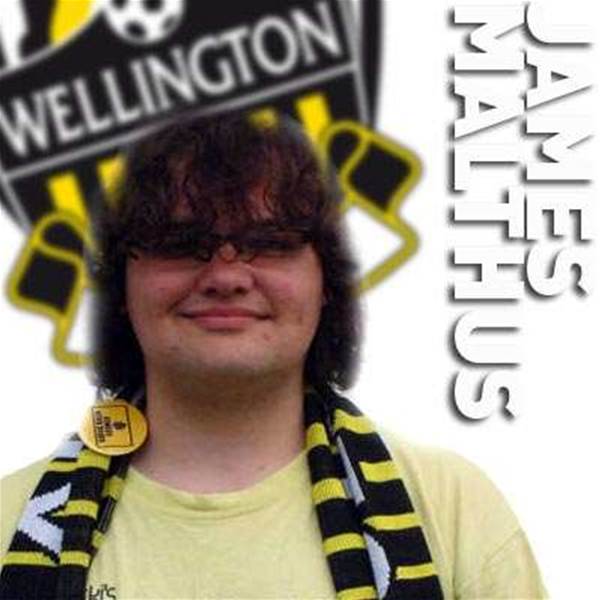MANY people will blame Ricki Herbert for New Zealand’s 2-0 loss to South Africa, they will call for him to be removed from his position, and they will call for his replacement to be a relatively high-profile international appointment.
This would maybe make sense if trying to cure a head cold, but Football in New Zealand has been nigh on paralytic since tobacco sponsorship was made illegal in the late 80's/early 90's.
Up until this point the game was relatively thriving, with a solid national league and cup and a recent trip to the World Cup in Spain. Interest in football was growing, and clubs were developing players that went to ply their trade in Australia and Europe; the most notable being Wynton Rufer, who was still playing in Wellington when he caught the eye of many during that World Cup.
All of this was supported by lucrative tobacco sponsorship, with Rothmans being a particularly prominent example. When tobacco advertising died, the national football league followed suit, and the latest in a line of attempted replacements, the NZFC, has a charitable trust as practically its only sponsor. The lack of sponsorship dollars almost lead to two teams not taking the field last season, including the previous season's third-placed finishers, Team Wellington. In fact, as it became more apparent that the franchise was in dire need of money, Yellow Fever became a sponsor of the team and four of the individual players. The entire competition itself was reduced from 21 rounds to 14, so Wellington and Waikato could still compete.
This lack of funding is a problem across all areas of the sport and particularly at the highest level, where elite programmes are fighting for the little scraps of money. And it really is scraps, New Zealand Football announced that it was in extremely dire financial straits a year ago; they can only afford to fund what it deems to be the most important programme at any particular time. Sadly for the All Whites of the current day, those deemed important in recent years have been age-group World Cups and the Football Ferns (New Zealand's women's team).
What New Zealand Football needs is our own Frank Lowy. Terry Serepisos is a start, but he has refused to get involved in NZF; and rightly so, given Wellington Phoenix's position of having their A-league licence actually belong to the national body. If Serepisos got involved with NZF at a high level, he could come across real conflicts of interest, something that Lowy himself got into, and was heavily criticised for.
Also, what a man like Lowy has over Serepisos is that he is a respected businessman, and recognised as an excellent philanthropist. Lowy gave credibility to the FFA in business circles whereas Serepisos has still to acquire that level of respect.
In fact, Serepisos was nominated as both Wellingtonian of the year (for building the Phoenix) and most hated Wellingtonian of the year (for building controversial tower blocks) in a newspaper poll. For the record, I voted for him in both.
Hopefully, a man like Lowy could get the sponsorship football needs. While cigarettes are out, it's okay for beer to advertise, but with four of the country's most popular beers lining up with the Rugby codes (Tui, Speights, and Steinlager with Union, Lion Red with League), and another with Cricket (Export Gold), it would be like convincing a oil baron that it is a good idea to invest in alternative fuel sources.
So it is very important that we get people at the top that can attract sponsorship of credible businesses, who are interested in helping the game. While we can't tempt big firms like Hyundai with a fully professional, and well marketed league, as we are most likely multiple decades from such a possibility, we cannot continue to engage sponsors who don't even seem to have a reason for sponsoring football in New Zealand; why on earth Thai Airways decided to become primary sponsor of the All Whites the public will never know - it seems as if everyone has forgotten the agreement even existed in the first place.
It is from that kind of base that we can hire our Guus Hiddinks and Pim Verbeeks, and expect to become a proper top-70 nation based on results against teams of more quality than we meet in Oceania. If we hired one now, we would certainly improve in the short term, but we have to look at the Terry Venables experiment of the late 90s to project the long-term outcomes.
More young New Zealanders are finding their way into European youth academies and American College scholarships, and our age-group teams are hardly embarrassing themselves in competition, but they are baby steps compared to the giant Neil Armstrong-on-the-moon-esque leaps taken by the Football Federation of Australia in this decade.
Infrastructure-wise, I would say we are around about where Australia was 15 or so years ago, it's just that it could take us 30 years to get where they are now. But looking at initiatives like Small-Sided Games and deploying similar programmes may help our players get there faster. But someone, somewhere, please give NZF the money to do it!
James Malthus continues to believe it is all just hopeless this side of the Tasman, and we should just get over ourselves and federate with Australia already.












